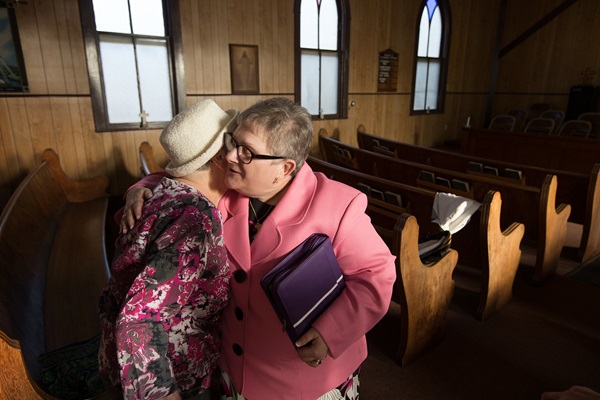You may be thinking a lot about community, loneliness and belonging. I know I am. Right now, many of us are surviving by doing what we can through virtual contact and limited and distanced social contact. But it’s not the same as prolonged and intimate face-to-face interaction.
Prior to the global COVID-19 pandemic, however, there was already lots of talk about the epidemic of loneliness.
The Health Resources and Services Administration (HRSA), an agency of the U.S. Department of Health and Human Services, cites research indicating, “Loneliness and social isolation can be as damaging to health as smoking 15 cigarettes a day… and the problem is particularly acute among seniors, especially during holidays.”
The HRSA goes on to note, “As a force in shaping our health, medical care pales in comparison with the circumstances of the communities in which we live. Few aspects of community are more powerful than is the degree of connectedness and social support for individuals.”
The importance of connection
In 2013, a forced move caused us to lose our connectedness. Major changes occurred at the Christian university where my husband and I worked, and we both were let go. It was an excruciating and traumatic ordeal, which was compounded by the economic uncertainty of staring down joblessness.
Thankfully, my husband found a job right away. I eventually did, too. However, nothing could replace the loss of our community and close friendships.
I had dear friends who watched and loved our daughters or invited us over to dinner at a moment’s notice and vice versa. In joy, sorrow, celebration, or crisis—we had friends— we had a community to look out for us.
A new connection
Shortly after our forced relocation, a United Methodist pastor, the Rev. Larry Kreps, and his wife, Marti Kreps, struck up a conversation with my husband as my husband was mowing the lawn. They happened to be strolling past our house on their daily walk around the neighborhood.
Eventually, they invited us into their home, to church, and babysat our children. They loved us on the heels of our traumatic and wounding experience. The assistant pastor at the church, Debbie Kaylor, did the same.
Not long after, Larry and Marti started a small group and invited us to be a part of it. In our new town, they knew our names, knew that we existed, and actually cared about whether or not we lived or died.
I will never forget the care they showed us by simply stopping to converse with us, inviting us into their home, and eventually into a small group. They embodied life-giving Christian love and hospitality.
It is rare these days.
We moved from that town and are currently having to rebuild our friendships and community. It is extremely difficult even though we attend a wonderful United Methodist church. And now, the COVID-19 pandemic has limited our ability to gather together.
Known and loved
For my part, I want to be known and loved and cared for by others. I want to extend the hospitality that Larry and his wife Marti extended to me; the care and friendship that Debbie shared.
One way to do it is through small groups, but we also need to find other creative ways to enfold others into our lives, into the church’s life and within our world. Cultivating and sustaining friendship and a healthy Christian community is countercultural in the world.
And yet, it’s the way of Jesus. John 1:14, tell us the Word, Jesus, came in the flesh and dwelt among us. Jesus enfolded others into his life and his community. It is on us to do the same. It takes work and is not always convenient. But it’s a life or death matter and well worth it.
The community my husband and I had will never be replaced—it’s in the past. That doesn’t mean we cannot contribute to forming new communities where we and others are known and loved. None of us can survive for long without friendship, connectedness, and social support.
My prayer is that you would make the intentional and concrete effort to extend friendship and community to others. May you be known and loved.
*Marlena Graves is the author of "The Way Up Is Down: Becoming Yourself by Forgetting Yourself." Hear Marlena on an episode of our podcast, Get Your Spirit in Shape.
This story was published October 26, 2020.





